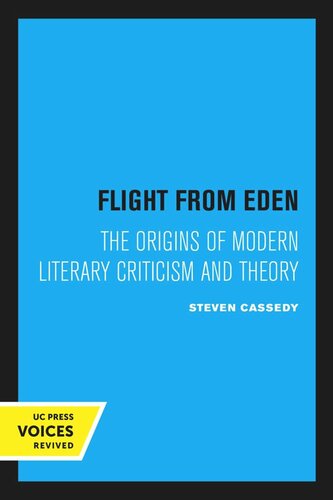

Most ebook files are in PDF format, so you can easily read them using various software such as Foxit Reader or directly on the Google Chrome browser.
Some ebook files are released by publishers in other formats such as .awz, .mobi, .epub, .fb2, etc. You may need to install specific software to read these formats on mobile/PC, such as Calibre.
Please read the tutorial at this link: https://ebookbell.com/faq
We offer FREE conversion to the popular formats you request; however, this may take some time. Therefore, right after payment, please email us, and we will try to provide the service as quickly as possible.
For some exceptional file formats or broken links (if any), please refrain from opening any disputes. Instead, email us first, and we will try to assist within a maximum of 6 hours.
EbookBell Team

4.0
26 reviewsSteven Cassedy takes aim at two of the most enduring myths of modern criticism: that it is secular, and that it is new and autonomous. He argues that though modern criticism is often forbiddingly scientific and technical, the modern critic remains something of a mystic. Every school of modern criticism--from structuralism to postmodern criticism--rests on a faith in an "Eden," an irreducible essence, a myth, like the common myth that there is an intrinsic distinction between "poetic" language and "ordinary" language. The modern critic attempts to abandon all mystical faith; this is the "flight from Eden." But it is always in vain. It is traditionally assumed that modern literary criticism and theory came from France, and relatively recently. In fact, according to Cassedy, the entire modern critical consciousness was already formed by the early twentieth century in the minds of writers who were primarily neither professional critics nor philosophers, but poets. Some were French (Mallarmé, and Valéry); others were not (Rilke, Bely, and the Russian avant-garde poet Velimir Khlebnikov). In them we find the same Edenic faith, the same effort to abandon it, and the same failure of that effort.